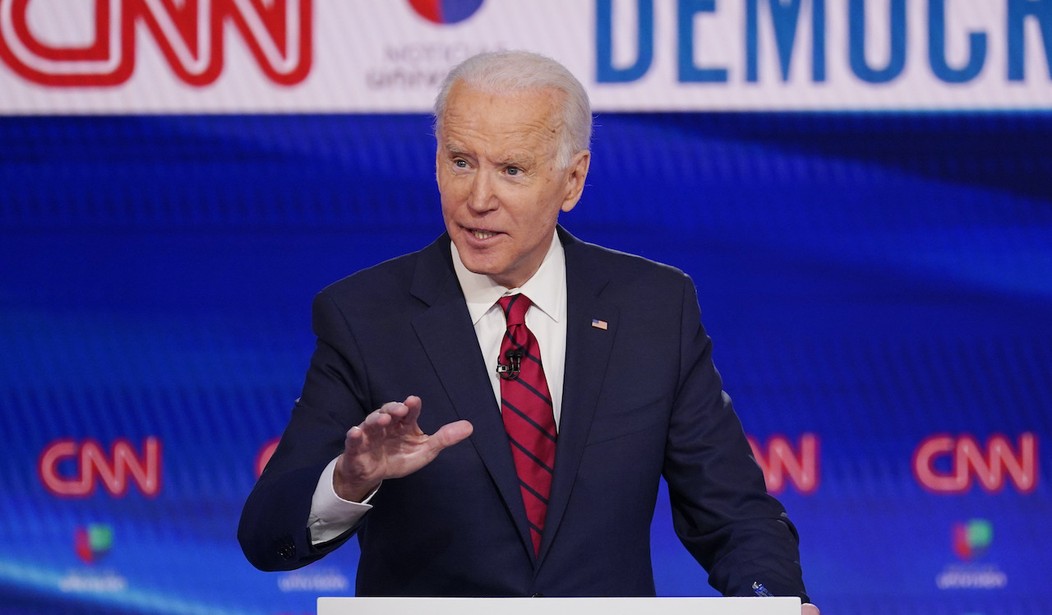The Wuhan virus and potential strategies to deal with its current grip on the nation took center stage during the Sunday night Democratic debate in Washington, D.C.
Frontrunner Joe Biden was particularly confident in his potential ability as a leader to combat the rapidly spreading illness, citing his experience as Vice President during the H1N1 and Ebola crises. Biden and rival Sen. Bernie Sanders (I-VT) also had harsh words for President Trump, with Biden noting several times that the current administration refused diagnostic testing kits from the World Health Organization in January.
Although early testing efforts in the United States were anything but smooth, the notion laid out by Biden that Trump flat out refused offers of millions of functional tests at the peril of his own nation is blatantly misleading.
In January, the WHO and a German owner of a small laboratory business, Olfert Landt, partnered to develop a test kit for the novel Wuhan COVID-19 virus. Landt was able to quickly develop a test but in contrast to Biden's assertion that the U.S. turned down help from the WHO in January, testing kits didn't begin distribution in earnest until February.
During the time that Landt's test was being developed in Berlin, the Centers for Disease Control and Prevention in the U.S. also developed a test, one which they claimed would be ready for wide distribution imminently. While the CDC worked on their test, several other private companies in the United States were working on their own testing kits. None of this was mentioned by presidential candidate Biden during his lampooning of the Trump administration.
Biden claimed that at this time the United States under president Trump turned down offers of millions of kits from the WHO. This is false. "No discussions occurred between WHO and CDC about WHO providing COVID-19 tests to the United States,” said spokeswoman for the WHO Margaret Harris. “This is consistent with experience since the United States does not ordinarily rely on WHO for reagents or diagnostic tests because of sufficient domestic capacity." The organization also asserted that its priority was to distribute testing kits to "countries with the weakest health systems."
Recommended
Testing in the United States was fraught with difficulty in large part due to the slow approval by the Food and Drug Administration to allow testing kits developed by private companies outside of the government controlled CDC to be used at a local or national level. Those FDA policies are consistent with the Obama Administration's response to H1N1 and Ebola in 2009 and 2014 respectively.
Landt, who developed the test kit currently being distributed by the WHO, acknowledged that it was the sluggishness with which the U.S. embraced the private sector that slowed down testing. The CDC, Landt said, was simply unprepared for the rate at which the virus was spreading. "There are 10 companies in the U.S. who could have developed the tests for them," he said. “Commercial companies will run to an opportunity like this."

























Join the conversation as a VIP Member